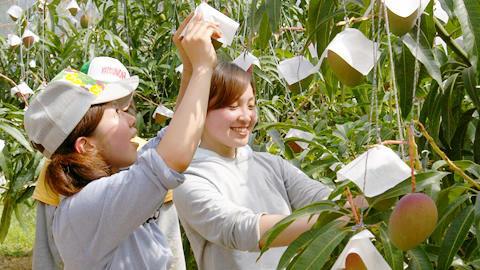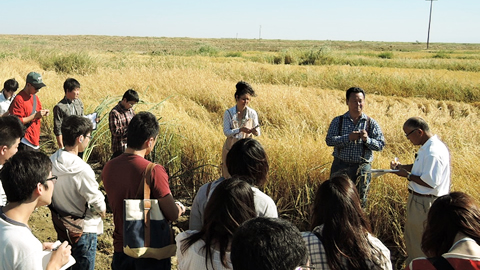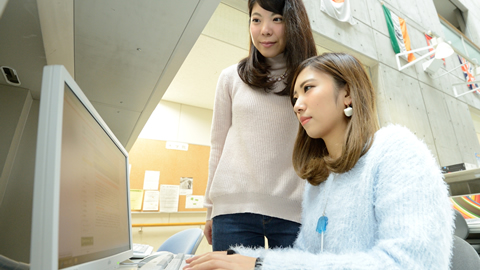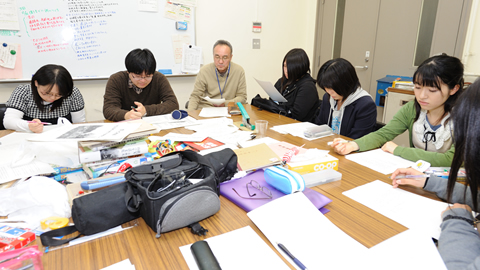Faculty of International Agriculture and Food Studies
Challenging the international society over issues concerning food, the environment, and business!
Issues concerning food (F), the environment (E), energy (E), economic growth (E), and population (P) have been recognized as common issues among humans around the world. Now, in the 21st century, these issues are still the most crucial problems in need of urgent solutions through international collaborative efforts that incorporate a global vision.
This faculty tackles these FEEEP issues head on. Our main focus is on training persons that can lead the various operational activities in related fields such as policy development and administration, planning and implementation, autonomy and entrepreneurship, research and education, etc.
With a common philosophy and objectives, this faculty is organized into three departments: (1) the “Department of International Agricultural Development” that uses advanced technology extensively, conducts research, and provides education on tropical agriculture for international cooperation in food and agricultural development in the developing nations mainly located in the tropical zone, as well as educates on the development and conservation of tropical biological resources; (2) the “Department of Food Environment Economics” that covers theories and technologies for the utilization and evaluation of resources and the environment to create an environment conservation-oriented global food agricultural economic system and construct a resource recycling-oriented society, as well as works on construction of a social economic theory and policy for the development of co-existence oriented agriculture and a rural area community, utilizing the regional uniqueness found in Japan and around the world; (3) the “Department of International Biobusiness” that trains internationally-minded persons to tackle entrepreneurship and the management of internationally-oriented “Biobusinesses,” using extensive IT skills. The “Biobusinesses” are recognized as a new industry that consists of food production, distribution, and processing businesses and related industries.
General Education
Laboratory of Comparative Languages and Cultures
KOBAYASHI Ryoichiro Associate Professor
TOKUNAGA Kazuhiro Assistant Professor
Laboratory of Health Science
Laboratory of Computer Literacy Education and Information Processing Application
Attached to the Faculty
International Agriculture and Food Research Institute
Director TAKAYANAGI Nagatada Professor




